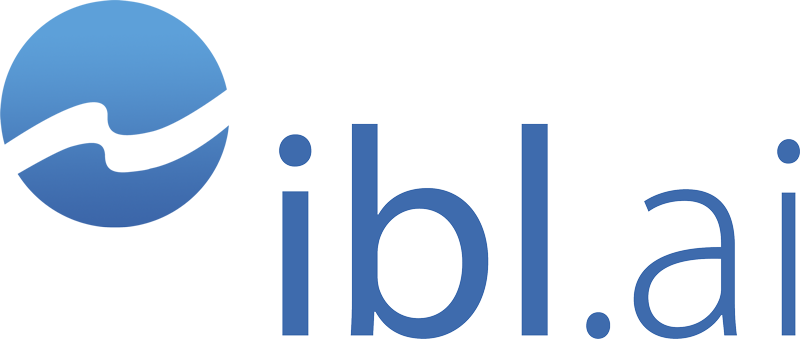Introduction
Artificial Intelligence (AI) is no longer a futuristic concept; it’s a present reality that is reshaping industries, from meteorology to education. In this blog post, we delve into the multifaceted applications of AI, exploring its role in weather forecasting, educational technology, and workforce development. We’ll uncover how platforms like ibl.ai are pioneering these transformations, providing insights that are both controversial and deeply technical.
AI Weather Forecasting Apps
Weather forecasting has always been a complex task, but AI is revolutionizing it. Traditional models rely on vast amounts of data and complex algorithms, but often fall short due to their inability to process real-time changes effectively. Enter AI weather forecasting apps, which leverage machine learning to analyze vast datasets, predict patterns, and provide accurate forecasts with unprecedented precision.
Imagine a world where farmers can predict droughts weeks in advance or where cities can prepare for hurricanes with pinpoint accuracy. This is not just possible but is being realized through AI-driven solutions. Companies are utilizing platforms like GCP Vertex AI to build scalable AI models that integrate seamlessly with existing meteorological data sources, enhancing prediction accuracy and reliability.
GCP Vertex AI Solutions
Google Cloud Platform's Vertex AI offers the tools needed to build, deploy, and scale machine learning models. It's a comprehensive environment that simplifies the process of developing AI applications, making it accessible even to those who are not AI experts. Vertex AI supports customizable LLM (Large Language Model) integration, allowing developers to fine-tune models specific to their needs.
For instance, educational institutions can leverage Vertex AI to create personalized learning experiences. By analyzing student data, AI models can identify learning gaps, recommend tailored content, and even predict future performance. This kind of predictive analytics is invaluable in crafting effective educational strategies.
AI Mentors in Education
The concept of AI mentors is both revolutionary and controversial. Traditional education relies heavily on human interaction, but AI mentors are proving to be capable of providing personalized guidance and support. These AI-driven systems can adapt to individual learning styles, offer instant feedback, and keep students engaged through interactive content.
Imagine an AI mentor that not only understands a student’s academic strengths and weaknesses but also their emotional state, providing support when needed. This level of personalized education is being made possible through platforms like ibl.ai, which integrate AI seamlessly into the learning process, ensuring that every student receives the attention they need to succeed.
AI Best Practices
Implementing AI effectively requires adherence to best practices. This includes ensuring data quality, maintaining transparency, and prioritizing ethical considerations. AI systems must be trained on diverse datasets to avoid biases and should be regularly updated to reflect new information and societal changes.
It's also crucial to involve stakeholders from the outset. Educators, developers, and students should all have a say in how AI is implemented, ensuring that the technology serves the needs of the entire educational ecosystem.
AI Mobile App Development
AI is at the forefront of mobile app development, enabling apps to offer more personalized and efficient user experiences. From AI-driven chatbots that provide instant customer support to apps that use machine learning to recommend products, the possibilities are endless.
In the context of education, AI-powered mobile apps can transform how students learn on the go. These apps can offer personalized quizzes, track progress in real-time, and provide instant feedback. By integrating with platforms like ibl.ai, educational apps can harness the power of AI to offer truly personalized learning experiences.
AI in Educational Technology Solutions
AI is driving innovation in educational technology, offering solutions that were once unimaginable. From intelligent tutoring systems to adaptive learning platforms, AI is making education more accessible and effective.
One of the most exciting developments is the use of AI for training need identification. By analyzing performance data, AI can identify skills gaps and recommend targeted training programs. This ensures that both students and professionals receive the training they need to succeed in their careers.
Customizable LLM Integration
Large Language Models (LLMs) like GPT-3 have shown immense potential in understanding and generating human-like text. Customizable LLM integration allows developers to tailor these models to specific needs, enhancing their relevance and effectiveness.
For instance, ibl.ai leverages customizable LLMs to create interactive learning experiences. By integrating these models into their platform, they can offer personalized feedback, generate relevant content, and even simulate real-life scenarios for students to engage with.
AI Performance Tuning
Performance tuning is critical to ensuring that AI models operate efficiently and effectively. This involves optimizing algorithms, refining datasets, and continuously monitoring performance. Effective performance tuning can significantly enhance the accuracy and reliability of AI systems.
In educational settings, performance tuning ensures that AI-driven tools and platforms provide accurate assessments and recommendations. This enhances the learning experience, ensuring that students receive the support they need to excel.
AI Inclusive Learning Platforms
Inclusivity is a major challenge in education, but AI is helping to bridge the gap. AI-driven inclusive learning platforms ensure that every student, regardless of their background or abilities, has access to quality education. These platforms can adapt to different learning styles, provide support for students with disabilities, and offer content in multiple languages.
ibl.ai is leading the charge in creating inclusive learning environments. By leveraging AI, they ensure that all students have the opportunity to succeed, breaking down barriers to education and fostering a more equitable learning landscape.
Conclusion
The transformative power of AI is undeniable. From revolutionizing weather forecasting to reshaping education, AI is driving innovation across industries. Platforms like ibl.ai are at the forefront of this change, harnessing the power of AI to create personalized, inclusive, and effective learning experiences. As we continue to explore the potential of AI, it's crucial to adopt best practices, prioritize ethical considerations, and ensure that these technologies serve the needs of all stakeholders.
The future of AI in education and beyond is bright, and with the right tools and strategies, we can unlock its full potential. Let's embrace this technological revolution and create a future where AI empowers us all.





























